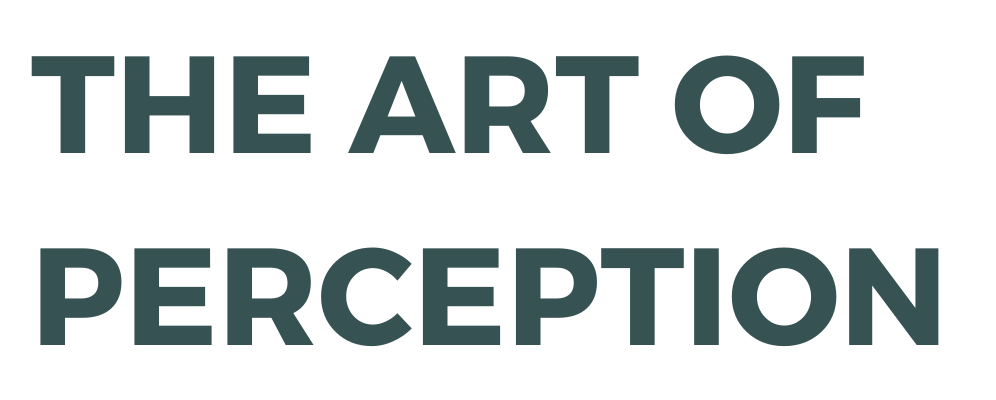How to stop worry before it starts
Growing up in Ireland, any time I worried about things as a child, my mother always referred me to ‘The Irish Philosophy’ proverb that proudly hung on our wall in the kitchen, which read:
Why Worry?
In life, there are only two things to worry about—
Either you are well or you are sick.
If you are well,
there is nothing to worry about,
But if you are sick,
there are only two things to worry about—
Either you will get well or you will die.
If you get well,
there is nothing to worry about,
But if you die,
there are only two things to worry about—
Either you will go to heaven or hell.
If you go to heaven,
there is nothing to worry about.
And if you go to hell,
you’ll be so busy shaking hands with all your friends
You won’t have time to worry!
As an adult, now living in the UK, I no longer have these insightful words to refer to on my way to breakfast. However, I recently came across some interesting statistics about worry that, despite being a human race instinctively prone to worry, there are many other great reasons why there may be no need to worry.
In May 2021 a worldwide survey stated that 42% of us are worrying about Coronavirus, 34% on unemployment, 32% of us worry about poverty and social inequality, and 30% on financial and political issues. The list goes on[i].
The news reminds us daily about these and many other things to worry about, with reports of crime, violence, and devastation across the world. Then there are our own personal worries about health, money, relationships, children, jobs etc., etc. That is a lot to worry about!
Worries can be defined as ‘emotional experiences involving unpleasant and persistent thoughts about the future’[ii]. Some of our worries though do serve a purpose. In the same way that negative emotions aim to keep us safe and help us avoid danger, our worries can allow us to prepare for the worst and motivate action. For instance, if you worry about upcoming exams, you may put more effort into studying to get prepared, or it might be that you worry about being late for a meeting, so you leave a half an hour earlier. However, when your worries become persistent or are of a nature that you may not be able to change, they can become destructive and incredibly damaging to your mental health, and some worries can literally make matters worse!
Some people label themselves as natural worriers. Unsurprisingly, we are actually all natural worriers, but some of us have the tools and skills to manage it better than others. The awesome news is that like ‘The Irish Philosophy’, the great majority of us have very little to worry about. Researchers at Penn State University[iii] found that 91% of people’s worries never happened, and of those 9% of worries that did happen, they all turned out better than the perceived worry, thus stating there is nothing to worry about! So why are we worrying?
Unfortunately for some of us, the human brain has been hardwired for perpetual worry, but you can disrupt this pattern by catching the worry before it takes hold and re-position your thoughts. Neuroscientist Dr Jill Bolte Taylor suggests in her book My Stroke of Insight, that there is a 90-second window[iv] in which the brain releases a neural response to a threat, unwanted event or experiences, also known as the ‘fight, flight or freeze”[v] response. If the responding emotion lasts beyond that 90-second window, then it is the person choosing to stay with that emotion. This is really useful when there is a serious threat you are facing, like encountering a bear in the wild or dodging an avalanche. However, realistically, in our day-to-day interactions, the ‘fight, flight or freeze’ response is rarely warranted, and the 90-second rule enables us to become aware of the response that is happening within us, breathe and allow it to pass, choosing not to stay in a pattern of fear, rumination and worry. How to practically do this is down to each individual.
Positive psychology lends a powerful hand in the recovery of unhelpful emotional responses. Practices such as the 3-minute breathing space, gratitude exercises and visualisation can work well in the moment, or you can simply follow the second hand of a watch or clock, counting down 90 seconds, which will ground you in the present moment. For ongoing worries and rumination, tools like mindfulness, meditation, and emotional pivoting, can all help reduce, and in some cases, eliminate worry for good, so you no longer feel that sinking feeling in your tummy, a rapid beating heartbeat, or debilitating overwhelm resulting unnecessarily.
Today, you might think of following ‘The Irish Philosophy’ and ask yourself ‘Why Worry?’.
Need help with finding the right tools to get rid your ongoing worries? Book a consultation session with me to learn the best positive psychology tools that can help you eliminate any worries that might be holding you back.
BOOK A CONSULTATION HERE
[i] https://www.statista.com/statistics/946266/most-worrying-topics-worldwide/
[ii] https://onlinelibrary.wiley.com/doi/abs/10.1111/spc3.12311
[iii] https://europepmc.org/backend/ptpmcrender.fcgi?accid=PMC7233480&blobtype=pdf
[iv] https://amzn.to/3d5dF4H
[v] https://link.springer.com/referenceworkentry/10.1007%2F978-3-319-24612-3_751




